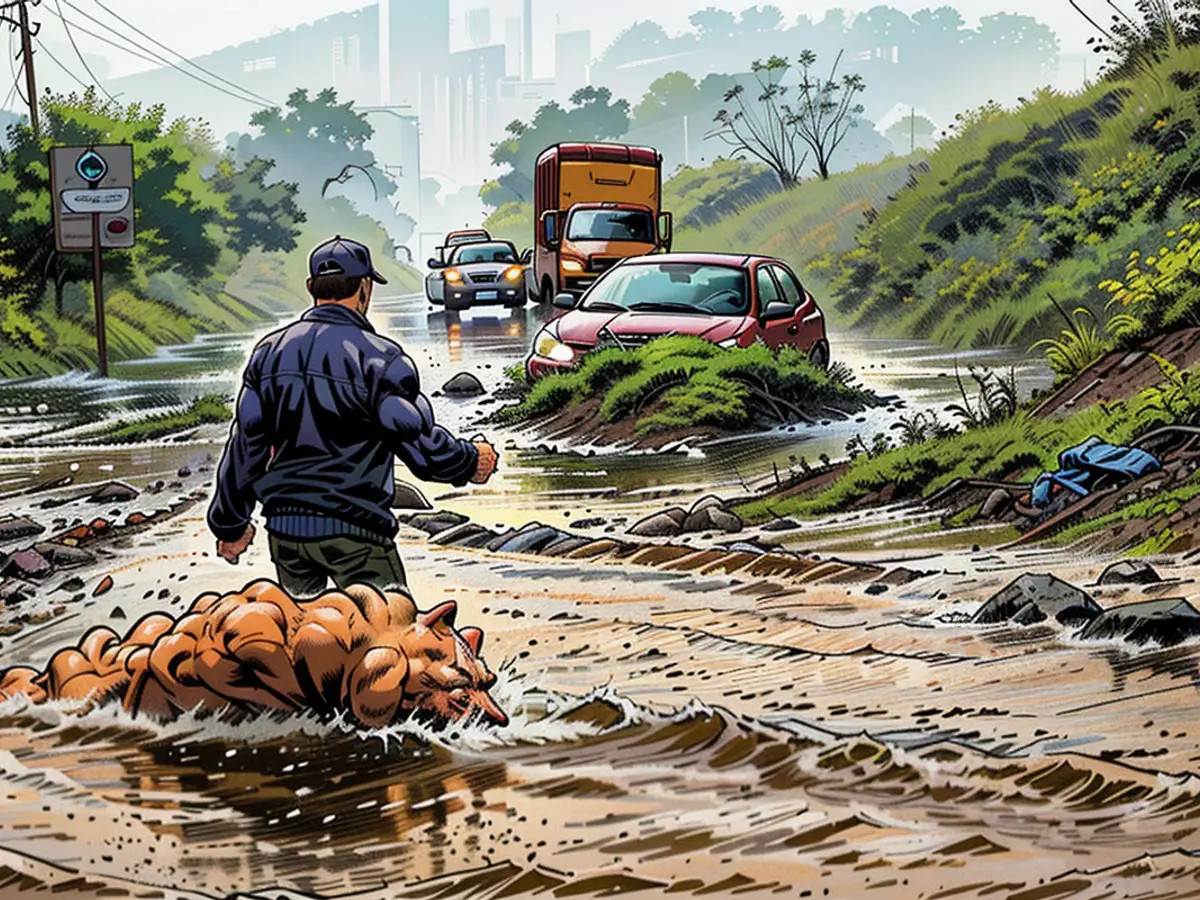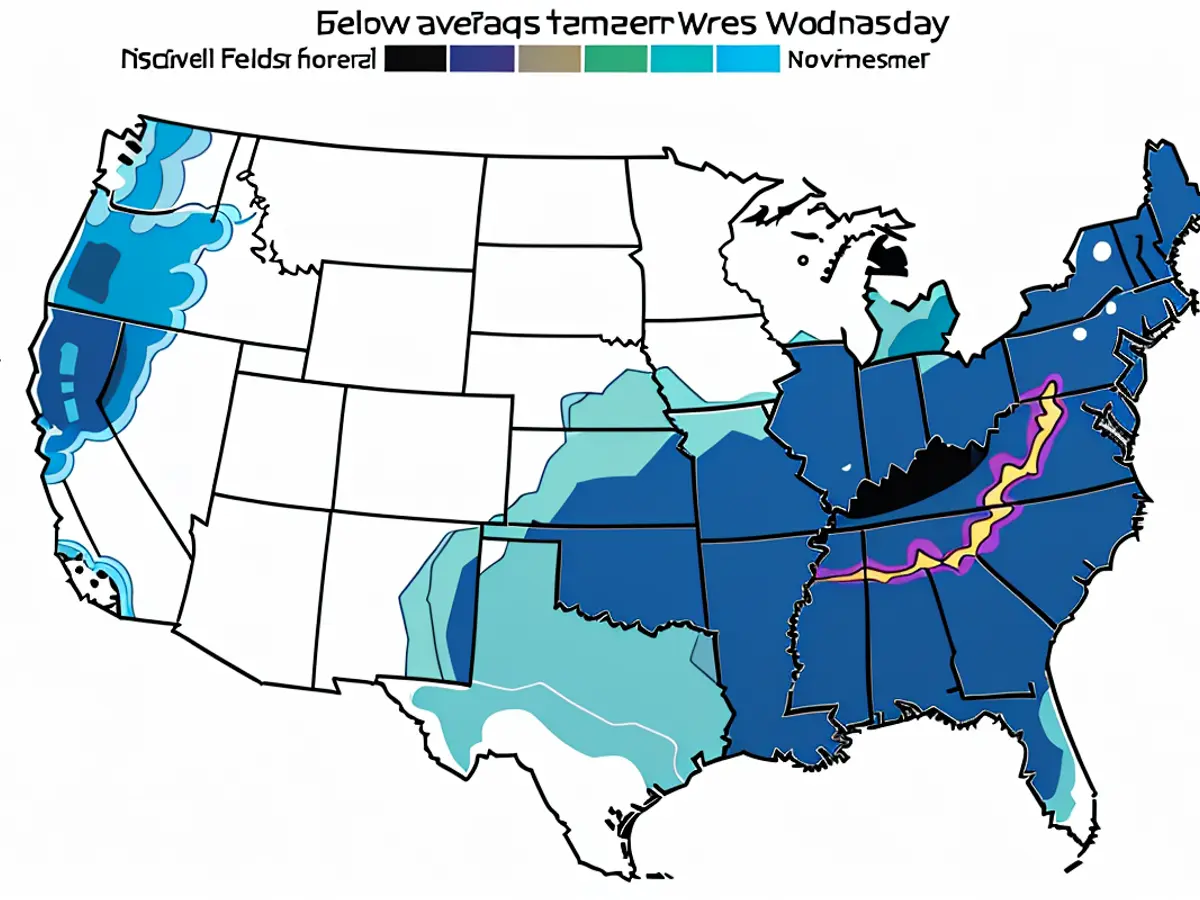torrential floods infiltrate Nigerian zoo, leading snakes and crocodiles into nearby residential areas
In the northeastern Borno State, which has been severely impacted by floods in the region, personnel from a state-operated zoo reported Tuesday that over 80% of the wildlife there had perished due to the surging waters. The zoo's inhabitants, including dangerous reptiles, were also swept into nearby communities.
A clip of an ostrich navigating a submerged road in the city's capital, Maiduguri, has gone viral on social media platforms.
Manzo Ezekiel, a representative from NEMA, Nigeria's disaster management agency, spoke to CNN on Wednesday, disclosing that attempts were being made to retrieve the escaped animals.
"I believe the zoo managers are working tirelessly to retrieve as many animals as they can. Animals roaming around pose a threat to the public," Ezekiel said.
Swathes of Maiduguri remain submerged following the overflow of the Alau Dam, approximately 20 kilometers (12 miles) southeast of the city, over the weekend. The deluge left numerous houses submerged.
The UNHCR described the flooding as the most severe in Maiduguri over the past 30 years.
No human fatalities have been reported as a direct result of this incident, but over 200 people have lost their lives in other flood-related occurrences in the country during the recent weeks.
The UNHCR has estimated that about 280,000 people have been affected in Maiduguri, with approximately 200,000 others being displaced within the city.

Flooding in Nigeria during the past few weeks has resulted in 229 deaths and the displacement of over 386,000 people, as per the latest data shared with CNN by NEMA. Northern Nigeria has been hit the hardest by the floods.
According to NEMA, one of the Borno dam's spillways collapsed, resulting in increased water flow and intensifying the surrounding area's flooding.
Ezekiel explained to CNN that "the flooding is extremely intense" and "surpasses what was anticipated."
"We didn't anticipate this quantity of water rushing into the town," he added.
The Nigerian Meteorological Agency (NIMET), however, had issued a warning regarding the risk of flash floods in the country following heavy rainfall.
Last month, the Nigeria Hydrological Services Agency (NIHSA) also issued a warning about the rising water levels of the Niger River, one of Nigeria's largest rivers, urging precautionary measures.
Analyses by the Intergovernmental Panel on Climate Change predict that extreme rainfall events will become more frequent and intense across almost all of Africa, including Nigeria, as human-induced climate change drives up global temperatures.

The current flooding in Borno State is severely affecting the weather, making it persistently rainy and leading to the surging waters. Despite the efforts of the zoo managers, the weather conditions are making it difficult to retrieve the escaped animals, which pose a threat to the public.








